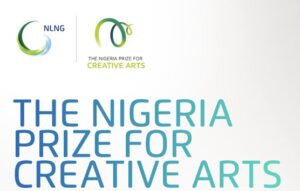The Young African Leaders Programme of the School of Transnational Governance provides a unique opportunity for policy experts from Africa to further develop their policy work and professional skills amidst international experts.
In the dynamic academic environment of the European University Institute in Florence, selected participants will take part in workshops, training and skills development sessions, conferences, study visits and field trips in Europe. Interaction with the other fellows, policy-makers and the academic community at the EUI will make this a truly unforgettable experience.
The three-month leadership programme will take place between September and November 2021 and places are fully-funded with a grant of € 2,500 per month. The African experts must live in the area of Florence for the duration of their stay. The language of the programme is English.
The Programme targets mid-career, high potential policy-makers, diplomats, and professionals from Africa, working in national and local authorities, regional, continental, international organisations and development partners, civil society organisations, academia, media and private sector, in Africa. More precisely, the Programme is open to young female and male professionals, mid-career and executives alike, who are nationals of African countries, residing in Africa and are under the age of forty-five.
Requirements
- Mid-career professionals (e.g. in politics, civil service, business, media and non-governmental organisations) from Africa, able to demonstrate both professional experience and potential for future excellence in the policy sphere.
- Potential beneficiaries should have at least seven years of relevant work experience and must be able to demonstrate competencies in professionalism, teamwork, client orientation, planning and organising and potential leadership.
- Potential beneficiaries must hold a Master’s Degree in Economics, Social Sciences, Public Administration, International Development, Business Administration, Law, Finance or any other relevant field. To promote and help advance on strategic themes and policy areas relevant to transnational governance, including regional integration and regional governance, gender empowerment, environmental governance and climate change, cross border resource governance, diplomacy, digital politics, cross border economic governance, social sciences, and humanitarian disasters such as pandemics, which are crucial to deliver sustainable and locally-owned development in African countries, as well as to contribute to the effective implementation of the Africa-EU-Partnership and the African Union’s Agenda 2063.
- Candidates must prove experience, knowledge or show interest in: (i) strategic planning and execution; (ii) negotiation and change management; (iii) policy formulation, and development implementation of new strategies and procedures; (iv) ability to communicate and interact with officials at all levels of government and to work effectively with a wide range of constituencies in a diverse community; (v) research/analytical work in relevant areas of transnational governance; (vi) working on multilateral, regional or continental African issues.
- Genuinely engaged individuals involved in policy issues, especially those related to transnational governance.
- Self-motivated people, able to present a clear work plan for the fellowship to show what the applicant will achieve and how this work will have a ‘multiplier’ effect after the training programme.
- Curious and engaged contributors. Participants are expected to be part of the EUI community on a daily basis and to participate in peer discussions on topics which may be beyond their expertise.
- People who are fluent in written and spoken English.
The Programme expressly aims at ensuring a balanced mix within the participants in terms of gender, geographical origins, country’s income and fragility levels, mandate of the institutions they work for, past experiences, professional backgrounds, so as to represent the diversity of Africa and provide opportunities to less-advantaged applicants.
The main language of implementation of the programme’s pilot phase will be English. But, in the longer-term the Programme aims to operate in French as well.
Duration
The leadership programme has a duration of 3 months: September – November 2021.
The programme will be structured as follows:
- Executive Training Seminars, on thematic issues;
- Professional Development Workshops, providing a set of leadership skills, tools and concrete case studies;
- Study Visits to international organisations and EU institutions
- Final individual written assignment
- Award of the YALP certificate of attendance
- Connection to network of scholars and practitioners knowledgeable in relevant transnational governance
Benefits
Travel expenses
Participants (but not their families) receive reimbursement for the incoming trip from their place of origin to Florence, and for the outgoing trip to their destination at the end of their programme.
- First-class rail (travel by car is also reimbursed on this basis)
- Economy class air fare
The maximum amount for travel reimbursement amounts to €1,200 including both incoming and outgoing trip. Taxi expenses are not reimbursed.
Residence
Participants must reside in the area of Florence for the duration of their stay so that they can take an active part in the activities of the EUI and the leadership programme. The programme includes some visits to institutions, experts and events outside Florence and Italy.
Grant
The basic grant is € 2,500 per month.
Successful applicants who receive other grants or salaries must disclose this to the EUI. The amount of the grant will be fixed at a lower rate depending on the amount of the additional income (upon production of relevant supporting documents).
If applicable, family allowances will be added to the basic grant.
Selection of Fellows
The STG will establish a Selection Committee, composed of EUI/STG and DG International Partnerships (INTPA) representatives, which will steer the selection process. In selecting potential beneficiaries, beyond quality and experience of each of the candidates, the Selection Committee will pay particular attention to gender balance, fair presence of the different categories of actors (authorities, civil society, international organisations, etc.), as well as good representativeness across sub-regional geographical areas in Africa, as well as looking at creating opportunities to candidates that have not joined such type of programmes in the past.
Method of Application
Requested Documents
Candidates should submit the following documents in the English language and possibly in PDF:
- CV, including information on the date and place of birth, residency and contact details.
- Short biography. The bio serves the purpose of the selection process and will also be used for communications purposes if the applicant is accepted for the fellowship. It should be written in third person singular and be around 100-120 words (around 800 characters with spaces).
- Letter of motivation (max 1000 words) in PDF, describing the interests and/or links with transnational policy issues, the reasons to apply for the fellowship and future professional milestones.
- Note with title (max. 1000 words) in PDF, describing the expectations for the fellowship as well as which policy area in transnational governance (i.e. peace and security, gender, sustainability, migration, green transition and energy, digitalization) the candidate would like to focus during the fellowship. The note will be useful to tailor training courses, as well as will possibly prepare the fellow for the final fellowship assignment (i.e. policy paper/report/brief, an article, social media piece, etc.) The note must be clear and structured, with well-defined and realistic goals that can be achieved within the duration of the fellowship.
- A copy of the highest educational certificate and the medium of instruction this highest level education was offered.
- Name and contact details of one referee, preferably a person who has worked with the applicant, whom the EUI may contact. Preference should be given to non-academic referees.
The deadline for submitting the requested documents and the name/contact of the referee is 31 March 2021, 23h59 (Central European Time). Kindly, submit the requested documents and the name/contact of the referee together in only one email indicating “YALP Submission 2021” in the subject, to the email address: STG.Africa@eui.eu.
Application Deadline: March 31st 2021
For More Information:

